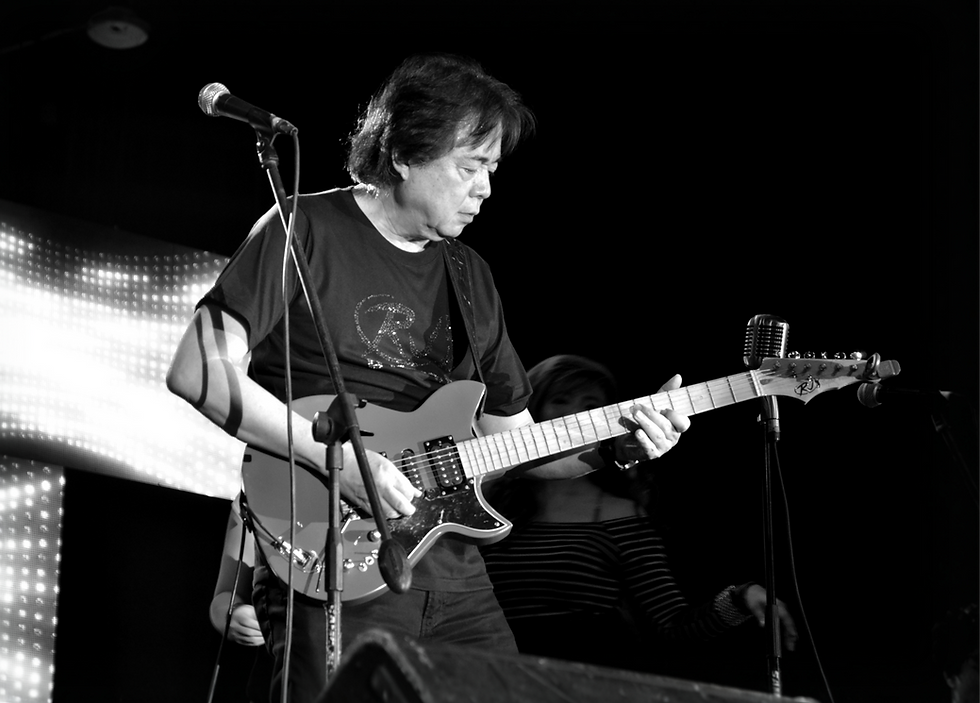

Ramon “RJ” Jacinto:
The Rock n’ Roll King
of the Philippines
Often called the “Dick Clark of the Philippines” or the “Richard Branson of the Philippines,” Ramon “RJ” Jacinto is best known as “Mr. Rock ‘n’ Roll,” “The Main Man,” and simply, “RJ.” A trailblazer in both music and business, his influence spans decades and industries.

ABOUT
The Early Beat of a Revolution
Long before he became a media mogul and entrepreneur, RJ Jacinto was already making history as a musician and innovator. Rock ‘n’ roll had just emerged globally, transforming music forever—and RJ was at the forefront of introducing this groundbreaking sound to the Philippines.
At just 15 years old, RJ formed his band, RJ and the Riots—one of the first Filipino groups to use electric guitars and instruments. The following year, he launched his first business venture, RJ Enterprises, a recording studio that produced and released their records. This bold move not only kickstarted his music career but also introduced modern recording technology to the country.
RJ Enterprises pioneered multi-track recording in the Philippines, acquiring the nation’s first Ampex 300-3 track machine in Asia. Their studio quickly became the go-to destination for artists and advertising agencies seeking professional-quality production.
As early as 1961, RJ and the Riots scored a #1 hit. They were trailblazers of original Filipino electric instrumental music and the first band in the country to record original rock n’ roll songs using electric instruments and lyrics—marking the dawn of modern music in the Philippines.
In 1964, they released one of their most significant works: the self-titled album RJ and the Riots. After almost 40 years, the album was awarded a five-star rating in Hans Pokora’s 1001 Record Collector Dreams, an internationally respected reference guide first published in 2003 that highlights rare and culturally significant vinyl records. A five-star rating in the book signifies exceptional musical artistry and collectible value, cementing RJ’s place in rock history.
From Music to the Airwaves: The Birth of DZRJ
At just 17, RJ extended his passion for rock into broadcasting by founding DZRJ, the Philippines’ first and only rock ‘n’ roll radio station at the time at the backyard of his parents’ home. At that time, it took 6 months for record releases in the USA to reach the Philippines. He personally had vinyl records shipped from the United States—songs not played anywhere else in the country. These included music by The Ventures, The Beatles, The Shadows, The Beach Boys, Little Richard, Chuck Berry, Eric Clapton and Elvis Presley, bringing American rock to Filipino audiences for the first time.
DZRJ became a revolutionary cultural force, breaking the mold of traditional radio and inspiring the youth of the 1960s to tune in, turn on, and rock out.
Resistance on the Radio: The Rise of Pinoy Rock
When Martial Law was declared in 1972, DZRJ continued to push boundaries—even under military scrutiny. During this politically repressive time, the station evolved into a cultural resistance platform and underground music, coining the term Pinoy Rock.
Through the groundbreaking show Pinoy Rock ‘n’ Rhythm, hosted by the iconic DJ’s Charlie Brown (Emil Quinto) and later on, Howlin’ Dave, DZRJ began playing original Filipino rock music that voiced the frustrations and dreams of a nation under dictatorship. The station encouraged young artists to send in demos, giving rise to a wave of authentic street-born rock. From this platform emerged some of the most legendary acts in Filipino music history—Pepe Smith, Florante, Maria Cafra, Sampaguita, and even Apo Hiking Society. The show became a landmark of Filipino music and identity.
Exile and Resistance
As Senior Vice President of Iligan Integrated Steel Mills, RJ helped co-found and lead the largest steel company in the Philippines. Remarkably, the mill was established one and a half years before South Korea’s Posco, making the Philippines the second country in Asia—after Japan—to operate a major integrated steel facility. Filipino engineers from RJ’s team were even sent to South Korea as advisers Posco’s early operations.
The scale and success of the Jacinto steel empire did not go unnoticed. President Ferdinand Marcos, intent on consolidating control over strategic industries, targeted powerful families such as the Lopez family (the largest broadcasting and electric power company) and Benigno Toda owner of Philippine Airlines.
With the declaration of Martial Law in 1972, Marcos made his move. The Jacinto steel mills were forcibly seized by the state, and RJ’s radio stations—including DZRJ and DZUW—were also placed under military control. Family executives were jailed without charges, and the Jacinto family’s assets were effectively stripped away under the guise of national interest.
RJ, returning from a family trip in Rome, narrowly avoided arrest after an unintended last-minute stopover in Tokyo. This twist of fate spared him imprisonment. He would go on to spend the next 14.5 years in exile—two years in Europe and the remaining 12.5 in the United States.
In 1977, while in San Francisco, RJ recorded “Muli” and “Don’t Let Go.” The songs were smuggled back to the Philippines and became underground hits. During this time, he also worked closely with fellow exile Ninoy Aquino, contributing music that supported the growing resistance against the dictatorship.
The EDSA Revolution and Return
During the 1986 EDSA People Power Revolution, Filipinos rose up to end the dictatorship of Ferdinand Marcos. At the time, most media was tightly controlled by the regime. The only way to rally people was through radio.
When government troops bombed the Catholic station Radio Veritas—the main station urging citizens to protect the rebel leaders at EDSA—broadcaster June Keithley and her team, guided by Fr. James Reuter, escaped and secretly resumed broadcasting from the DZRJ tower in the J&T Building, ironically just within walking distance of the presidential residence, Malacañang Palace.
To avoid detection, they used a new name: Radyo Bandido. Broadcasting from RJ’s facilities, they called on citizens to gather at EDSA and stand against the dictatorship. The response was historic—millions came.
DZRJ’s role was crucial: it amplified the voice of a silenced nation and helped spark one of the world’s most iconic peaceful revolutions. A backyard rock ‘n’ roll radio station became the “voice of democracy.”
On March 5, 1986, after the peaceful revolution, RJ returned to the Philippines. His radio stations and parts of the family business were handed back by Defense Minister Juan Ponce Enrile. By June, RJ was back on-air, hosting shows on DZRJ himself for eight hours a day. Playing retro hits from the 50s to 70s, the station became a magnet for nostalgia, ushering in a revival akin to K-Earth in Los Angeles or CBS FM in New York.
Bistro RJ and the Comeback of Live Music
On July 25, 1986, RJ opened Bistro RJ—a 60s rock ‘n’ roll lounge that revived live music in Manila’s nightlife scene. At a time when live bands were considered unmarketable and DJs or karaoke were the norm, RJ defied industry wisdom and bet everything on a live band renaissance.
In 1989, he organized the country’s first-ever 24-hour music festival, Pinoy Woodstock, which featured a then-unknown Arnel Pineda, later to become the frontman of Journey. The festival helped re-ignite the live music scene in the country.
RJ also launched nationwide Battle of the Bands competitions, which served as the first performance platform for many artists who would become household names in Filipino rock. These events helped shape a generation of musicians and reestablish live music as a cultural cornerstone.
RJ TV and the Golden Age of Pinoy Rock
In 1993, RJ launched RJ TV, one of the first Filipino television platforms to spotlight original Pinoy rock bands alongside pioneering the first Home TV shopping format in the country. It was here that groups like Razorback, Wolfgang, Yano, and The Breed got their first national TV exposure. RJ also professionally documented these performances, creating one of the only existing live archives of Filipino rock from the era.
RJ Productions Helps Other Artists
Aside from providing exposure and opportunities for local musicians through his radio and TV stations, RJ also played a vital role behind the scenes through RJ Productions—his in-house label and studio, which used RJ Recording Studios.
RJ Productions helped discover and launch the careers of several notable Filipino acts, including Father and Sons, I-Axe, and iconic rap superstar Andrew E. The label also produced some of the most memorable Filipino hits in music history, including Sampaguita’s “Nosi Ba Lasi” and Bosyo’s “Suklayin Mo Baby.”
Through RJ Productions, RJ not only championed diverse genres—from rock to rap—but also provided a professional platform where local artists could develop, record, and reach national audiences. His contributions helped shape the soundtrack of multiple generations in the Philippines.
RJ Guitars: A Legacy You Can Play
Founded over 35 years ago, RJ Guitars is a proudly home-grown Philippine brand that manufactures world-class instruments—an achievement rare in the local industry. Born out of Public Service and Nation-Building
Aside from being an astute entrepreneur, RJ’s exile lit a fire in him to help the Philippines.
RJ has served under two Philippine presidents in official cabinet-level roles. Under President Fidel V. Ramos, he was appointed Vice Chairman for Flagship Projects, contributing to national economic development.
Under President Rodrigo Duterte, RJ served as Presidential Adviser for Economic Affairs and Information and Communications Technology (ICT). In this role, he was tasked with crafting and leading the Common Tower Policy—a groundbreaking telecommunications reform that allowed telcos to share infrastructure. At the time, the Philippines was a duopoly with some of the worst internet speeds and connectivity in the region. This policy enabled telcos like Globe and PLDT/Smart to divest their towers and reinvest in critical infrastructure, resulting in faster, more affordable service and expanded coverage. Both companies later sold thousands of towers, marking the full adoption of the policy.
RJ also played a pivotal role in bringing Starlink to the Philippines, as acknowledged by Ramon Garcia and Rebecca Hunter of Starlink. This helped connect remote and underserved areas to high-speed satellite internet for the first time.
Empowering Communities: FWCC
Through FWCC (Financing Women Cooperative Center), RJ championed microfinancing programs for women entrepreneurs, promoting gender-inclusive development and providing capital for grassroots business growth across the country.
Still Rocking: A Life in Music
Astonishingly, RJ has performed live every single week since 1986—when he opened Bistro RJ upon his return from exile. He continues to play live every Friday at RJ Bistro and hosts RJ Sunday Jam, a weekly live radio and TV show he has been doing for decades. It airs every Sunday on RJ TV and RJ100.3FM.
In 2024, he released his most recent album—almost 65 years after his first hit.
A Living Legend
At 80 years old, Ramon “RJ” Jacinto remains a symbol of passion, reinvention, and rock ‘n’ roll spirit. His legacy spans the birth of Filipino rock, public service, economic reform, cultural preservation, and empowering communities.
From his first #1 hit at age 15 to shaping national policy and still performing in 2024, RJ proves RJ’s frustration with switching guitars mid-performance, he partnered with Filipino luthier Rudy Discipulo to create the RJ SuperVintage 5-Guitars-in-1, a groundbreaking design that became the foundation of the RJ Guitars line. Since then, the brand has grown into a nationwide retail chain with 10 stores and has expanded internationally, all while continuing to trailblaze the industry through innovation, craftsmanship, and unwavering dedication to Filipino excellence.
International Collaborations and Performances
RJ has collaborated or performed with internationally renowned artists including:
-
Jeff “Skunk” Baxter (Steely Dan, The Doobie Brothers)
-
John Ford Coley, John Gummoe (The Cascades), Bobby Kimball (Toto), Dennis Tufano (The Buckinghams), Marty Grebb
-
The Ventures
-
America – performed live with RJ at the Araneta Coliseum

AWARDS
1986
Presidential Plaque of Recognition (People Power Revolution)
Presented by President Corazon C. Aquino to DZRJ for its crucial role during the EDSA Revolution. DZRJ (Radyo Bandido) became a vital communications channel in calling the people to EDSA to protect the rebel forces when the Catholic radio station Radio Veritas wa bombed and went off-air.
1998
2003
2003
2010
Presidential Citation
Awarded on June 23, 1998, for exemplary service as Presidential Consultant for Flagship Projects under President Fidel V. Ramos.
California State Assembly Resolution
Commendation from the California State Assembly, introduced by Speaker Herb J. Wesson, Jr., recognizing RJ Jacinto’s illustrious record of accomplishments in music, broadcasting, entrepreneurship, and public service. The resolution honored his visit to Los Angeles and acknowledged his lasting impact on the Filipino community and global music industry.
Inclusion in 1001 Record Collector Dreams by Hans Pokora
RJ & The Riots’ self-titled second album, originally released in 1964, was featured in Hans Pokora’s internationally acclaimed book 1001 Record Collector Dreams. The album received a five-star rating, highlighting its rarity and significance in the global music scene. This inclusion underscores RJ Jacinto's pioneering contributions to Philippine rock and his enduring legacy in the world of record collectors.
23rd Aliw Awards:
Best Performer in Hotels, Music Lounges, and Bars
Recognized for excellence in live performance within premier entertainment venues.
2011
24th Awit Awards:
Dangal ng Musikang Pilipino
Lifetime Achievement Award from the Philippine Association of the Record Industry (PARI), honoring RJ's enduring contributions to OPM and the local recording industry.
2018
KBP Golden Dove Lifetime Achievement Award
Conferred by the Kapisanan ng mga Brodkaster ng Pilipinas (KBP) in recognition of RJ's significant legacy in Philippine broadcasting.

MUSIC
The Teenage Touch of RJ and the Riots (1961)
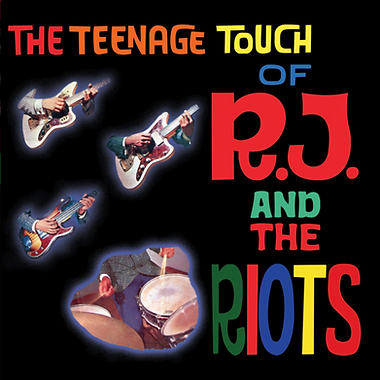
RJ and the Riots (1964)
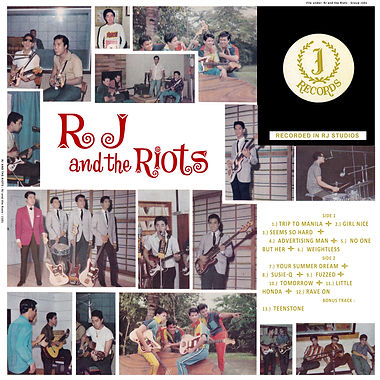
Back from Exile (1987)
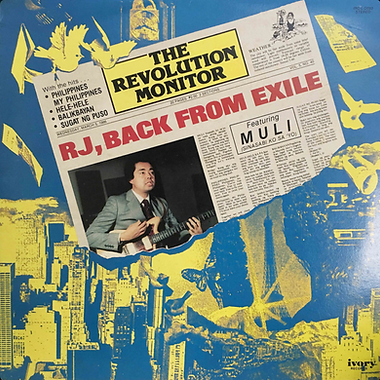
Giliw (1991)
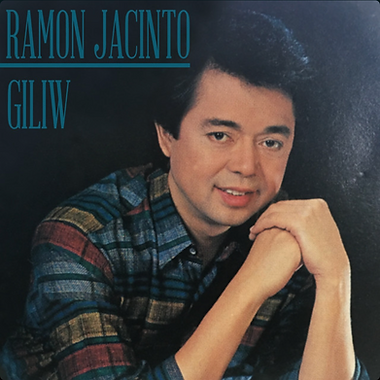
The Guitarman (1991)

RJ Compact Series (1992)
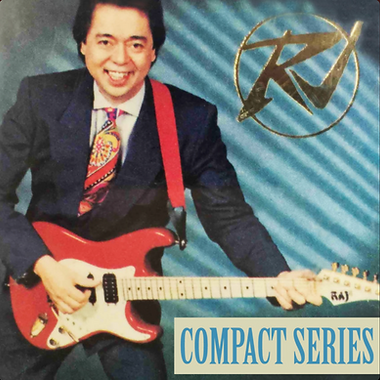
Guitarman II (1992)

Pasko Na Naman (1994)
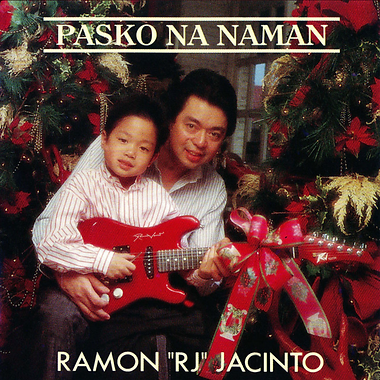
Rock 'n Roll Classics (2005)

Muli (2006)

Fine As Wine Instrumentals (2014)
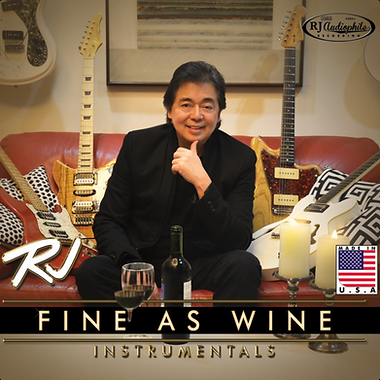
RJ Orig (2015)
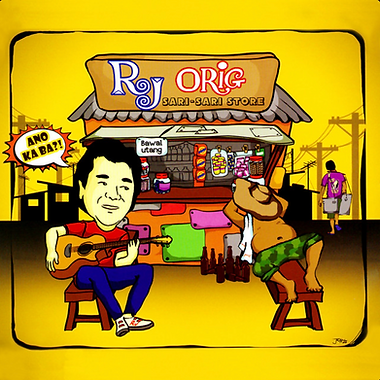
Supervintage Christmas Guitar Instrumentals (2015)

Swinging The Kundiman (2016)
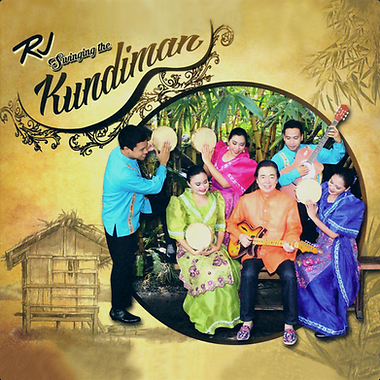
Romancing RJ (2016)

Songs I Grew Up With (2017)
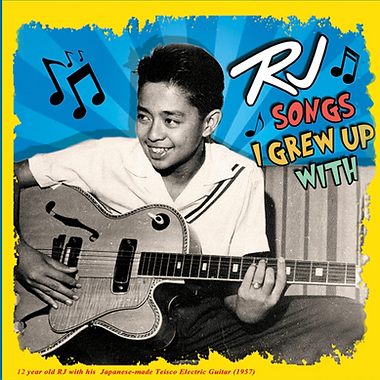
Kundiman Ni Guitarman (2019)

KundiRock (2020)
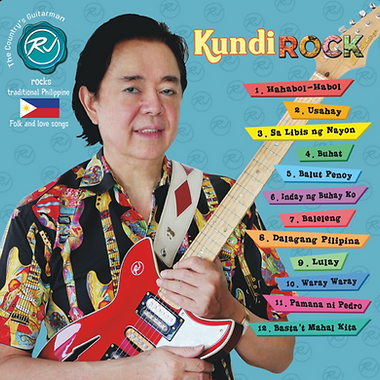
Bouncing Standards (2023)

Ampless Instrumentals (2024)

VIDEOS


70 Years of Rock 'n' Roll 🎸 | RJ's 70th Birthday Full Concert (2015)

RJ and the New Riots - Strangers in the Night / Something Stupid (Studio Sessions 2022)

I Saw Her Standing There| RJ Jacinto & Jose Mari Chan Busking on the Street 2024 (Official Video)

RJ and The Ventures - Bulldog & Yellow Jacket (LIVE)
EVENTS

